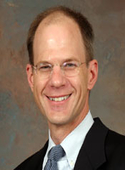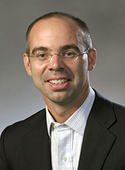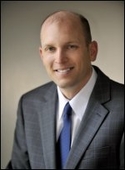Election Law and Litigation: The Judicial Regulation of Politics, Second Edition
Election Law and Litigation: The Judicial Regulation of Politics, Second Edition
Buy a new version of this textbook and receive access to the Connected eBook on Casebook Connect, including academic lifetime access to the online ebook with highlight, annotation, and search capabilities. Access also includes an outline tool and other helpful resources. Connected eBooks provide what you need most to be successful in your law school classes.
This casebook offers a student-friendly, practical approach with carefully designed pedagogical features. Its streamlined approach tracks the chronological order of an election, with significant focus on election administration. The authors have considered carefully how to make this book as student oriented as possible. The case selections reflect both the key Supreme Court decisions in this field and lower court decisions that are particularly well-suited to aid student comprehension. The cases are set up with introductory material that highlights for students the key points they should consider while reading. The cases are carefully edited to remove any unnecessary distractions. The notes following each case raise the types of thought-provoking questions a professor might ask in class. There are no extraneous "case notes" or lengthy citations to lower court opinions or law review articles. Every aspect of this book is geared toward ensuring this is a true teaching text.
New to the Second Edition:
- Developments from the 2016 and 2020 elections
- Recent cases from the Supreme Court and lower courts, including on redistricting and gerrymandering, campaign finance, foreign interference with elections, and the voting process
Professors and student will benefit from:
- Tightly edited cases to provide professors with assignments students can reasonably digest and that professors can reasonably teach within the confines of a typical law school course
- Useful notes that help serve as classroom discussion tools
- Up to date with the most recent Supreme Court and lower court decisions
- Student- and professor-friendly: Each unit is designed to correspond to one hour of classroom teaching, with the cases and notes edited to conform to tight word limits, so that the amount of reading for each class is suitably tailored to the amount of time for class discussion
- Streamlined, chronological approach: This casebook tracks the election lifecycle in chronological order—from defining the district to run in, to appearing on the ballot, to running a campaign (including spending and campaign finance), to registering to vote and the casting and counting of ballots (including post-election disputes)
- Topical, straightforward organization
- Balanced, practical coverage: Significant focus is placed on election administration, the nuts-and-bolts of running an election, and post-election controversies, with considerable devotion to all primary areas of election law, including districting and campaign finance, without overemphasizing any particular area to the detriment of others
- Nonpartisan viewpoint: Allows students and professors to use the book comfortably, no matter their own personal political or ideological perspectives, and in a way that creates a classroom dynamic that is balanced and open to various partisan and political views
Product Information
Election Law and Litigation: The Judicial Regulation of Politics, Second Edition
Connected eBook + Hardcover
Election Law and Litigation: The Judicial Regulation of Politics, Second Edition
LLPOD
Election Law and Litigation: The Judicial Regulation of Politics, Second Edition
Connected eBook (Digital Only)
Election Law and Litigation: The Judicial Regulation of Politics, Second Edition
Audiobook
Election Law and Litigation: The Judicial Regulation of Politics, Second Edition
eBook + Audiobook
Election Law and Litigation: The Judicial Regulation of Politics, Second Edition
eBook + Audiobook + Hardcover


